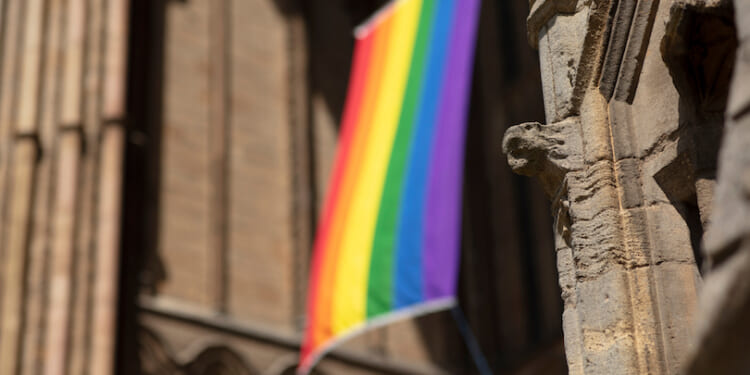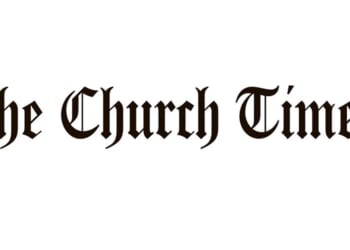(LifeSiteNews) — German Bishop Stefan Oster has criticized the pro-LGBT guidelines for Catholic schools published by the German Bishops’ Conference (DBK).
In a statement published on his personal website, Oster distanced himself from the DBK’s heterodox document on “sexual diversity” in Catholic schools.
“Even though the cover of the brochure says ‘The German Bishops,’ the text does not speak on my behalf,” the Bishop of Passau wrote, distancing himself from “its content and its theological, philosophical, pedagogical, and developmental psychological substance.”
For Oster, the document is part of a fundamental struggle over Christian anthropology.
“The concept of humankind and the Church as sacraments is up for debate in this discussion,” he stated.
He believes that “in its current form, the text produced by the Commission for Religious Education is well on the way to a desacralized understanding of humankind.”
He stressed that the Catholic understanding of humanity must not be abandoned, but warned that the document may be doing just that.
“For a different doctrine of humanity leads to a different doctrine of revelation, of the sacraments, of salvation – and thus necessarily to a different doctrine of the Church and its existence – and ultimately even to a different understanding of the Triune God,” he warned.
At the end of October, the DBK had published the document “Created, redeemed, and loved: Visibility and recognition of sexual diversity in schools.”
The aim of the document is to recognize and accept the “diversity of sexual orientations” in Catholic schools. It demands an “open and appreciative approach” from teachers to the sexual and gender self-identification of students. The document fails to uphold Catholic moral teaching, i.e., that sexual intercourse is only licit between a married man and woman and that same-sex attraction is disordered and contrary to nature. It also fails to mention that God created mankind as male and female and that only two genders exist.
Oster said that some references to Church teaching in the DBK’s text at least indirectly show that Catholic doctrine is considered unhelpful for the proclaimed goal of the document.
The Bishop of Passau questioned the humanistic approach to issues of sexuality in the document.
“The human sciences perceive human beings in their concrete existence – and, by virtue of their methodology, have no access to the genuinely Christian view of humanity with its prerequisites of faith, relationship with God, need for salvation, grace, sin, and the task and invitation to become more like Christ,” he wrote.
The text emphasizes above all a “primacy of God’s love,” which, however, is detached from “what has been handed down as truth and teaching about human beings.” With this “trick,” this primacy can then be “poured out indiscriminately over all the ‘diversity’ that presents itself,” Oster argued.
Almost every line suggests “not too much sexual morality, and certainly not the claim to truth”; instead, there is an “overdose of an emotionally charged super-dogma: ‘God loves everyone exactly as they are.’ Therefore, no one should be critically questioned about their diversity, as that would be discrimination,” Oster continued.
The bishop also criticized the DBK’s guidelines for failing to adequately address the issue of transgender identity disorder.
“Paradoxically, the phrase ‘exactly as God intended and loved’ is also supposed to apply to trans-identifying people who wish to align their physical sex characteristics with their new gender.”
Oster asks whether “God’s will” then refers only to the inner self-identification of being in the wrong body. Viewing the mind as independent from its alleged “wrong body” would represent a form of Gnosticism, a heresy condemned by the Church, the bishop warned.
Oster noted that many countries, like the U.S., the U.K., and the Scandinavian countries, have already reverted their approach to dealing with youth who suffer from gender dysphoria, restricting their access to hormone injections and mutilating “sex-reassignment surgeries.”
“If the intention of this ‘bishop’s paper’ was to be in tune with the times in socio-political discourse, then the text is already clearly outdated, especially on this point,” he stated.
Franz-Josef Bormann, a moral theologian from Tübingen, expressed criticism similar to that of Oster regarding the DBK guidelines, stating that the paper was unscientific, based on “feel-good and acceptance rhetoric,” and ignored the medical and psychological problems of many “queer” or “trans-identifying” young people.
Bormann lamented the fact that the text did not take a clear stance based on Catholic moral teaching. In particular, he said, it relativized the fact that there are only two sexes.

















